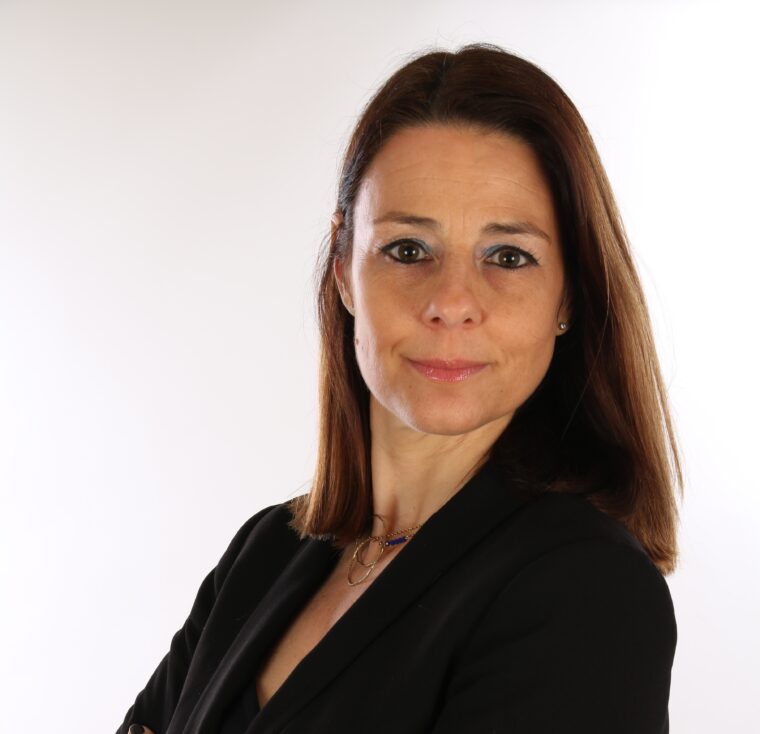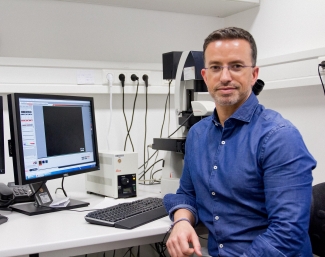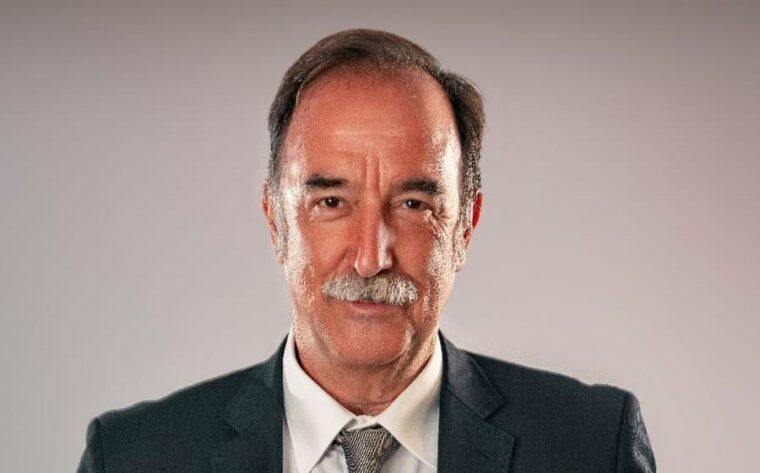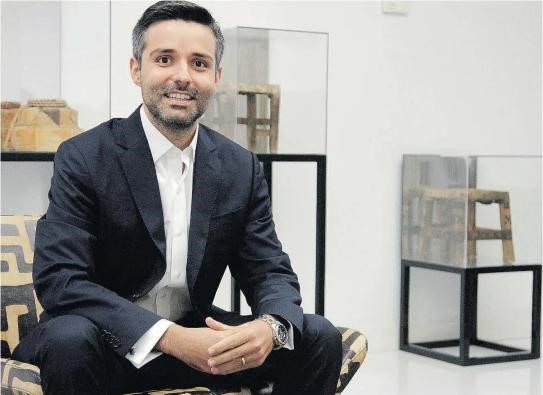He is one the main researchers on neurodegenerative diseases: Parkinson and Alzheimer, but he introduces himself as a biochemical from Porto, who specialized in neurosciences. Tiago Fleming Outeiro’s interview to Executive Digest.
Tiago Fleming Outeiro graduated in Biochemistry for the Faculdade de Ciências da Universidade do Porto and was na Erasmus student at University of Leeds, on the United Kingdom. He developed his PhD thesis at Whitehead Institute dor Biomedical Research, MIT, USA, where he developed the first model with yeast for the Parkinson disease. After that, he worked has a researcher and advisor at the biotechnology that he helped to create, FoldRx Pharmaceuticals, also in the USA. Tiago took after that his post-PhD at the Neurology Department at Massachussets General Hospital, Harvard Medical School, where he focused his studies on neurodegenerative diseases, such as Parkinson and Alzheimer.
He was President of the Portuguese American Post Graduate Society (PAPS) in 2005-2006, and Chairman in 2006-2007. He his currently, the vice-President of the Portuguese Society of Motion Diseases. He led the Molecular and Cellular Neuroscience Unit of the Institute of Molecular Medicine (IMM). He has been a member of the Portuguese Diaspora Council since 2015.
WHAT DOES TIAGO SAYS…
In the scope of the partnership with the Portuguese Diaspora Council, the Executive Digest took the advantage to have a short conversation with Tiago Fleming Outeiro, a Portuguese in the worldwide top in the research of neurodegenerative diseases. Let us know what Tiago says:
– Science is a global activity, living an exchange of knowledge. Do you see Portugal as na attractive country for researchers and scientists?
Yes, absolutely! Portugal invested a lot in education on the past decades, which helped to elevate the level of the science made in Portugal. Science is made by the researchers, that can’t work alone, so the proximity of other research collegues i sone of the factos that actracts the most other researchers. Obviously, infrastructures and equipment are also essential because they allow researchers to answer the questions they want to study. But also at this level we have evolved a lot, creating new research institutes, and new forms of management, in the same way that we do in other countries, that allow us to make science work. For all this, I see Portugal as an attractive country. And the proof of this is that we have been able to attract international renown researchers to our country. If we can do more? We can, and we must.
– Why did you decide to leave?
I did my most advanced training abroad, and then started my independent career in Portugal. I came back thinking that I would be developing my career in our country. But the truth is that we never know the future, and there was a unique opportunity, with unique conditions, which was a challenge that I thought I should take advantage of. I had the opportunity to become a Full Professor very early, and to have access to very good conditions to carry out the work I intend to do. I had the opportunity to have access to a stability that we do not have yet in Portugal, because we do not have access to positions in the Universities that can give us the stability that is necessary in science. I lived something like live the football players of FC Porto, Benfica, or Sporting. They already play in very good teams, but if an opportunity arises to go to Real Madrid, Juventus, or Manchester United, they do not say no. And so I decided to take up the challenge and go out again. But I have maintained a connection with Portugal, where I continue to develop scientific activity, which is very important for me, because I really like our country. And I have always tried to promote the image of Portugal abroad, which I think is also a way of helping the country.
– You’re a researcher in neurodegenerative diseases: Alzheimer e Parkinson. What do you want discover? Or what are you close to discover?
These diseases are terrible as they are highly debilitating, long, and progressive, affecting many millions of people around the world. With the aging of the human population, they are becoming a global scourge, with tremendous socio-economic costs. Unfortunately, we have nothing to offer people that is able to stop the progression of these diseases. We managed, in some cases, to treat some of the symptoms, but the disease continues to advance always. And we know very little about what is at the root of these diseases at a more fundamental level. That’s what I’ve been working on for 20 years. I want to realize what happens in the cells of our brain that causes them to stop working and die by altering the functioning of the brain. I cannot tell you what we are about to discover. If I could do it, it would not be science. What I can say is that we are advancing in knowledge, through the work of many researchers around the world, and that the small steps we are taking are important to the discoveries we are making every day in this area.
– Can there be hope in the discovery of therapeutic formulas?
There must be that hope! We have advanced a lot in knowledge, and today we have the most powerful technology to answer the questions we still have. It does not mean that we are able to by “deadlines” when we can get new therapies, but we know that through the work that fundamental and clinical researchers have done, we are moving in the right direction. That is why this hope can and should be! Let’s get there!
– You said the brain is a fantastic machine weighing 1.4 kg with approximately 100 billion neurons. What have been your most valuable discoveries?
In fact, the brain is this fantastic machine that allows us to communicate, see, feel, smell, love, feel pain, feel pleasure … Our discoveries have focused on a particular aspect that we know to be associated with these neurodegenerative diseases – in the brains of the patients, clusters of proteins are formed and accumulate that alter the normal functioning of neurons in the brain and lead to their death. We have realized how cells deal with the accumulation of these protein clusters, which are like garbage that accumulates as the cells age. We have discovered how to help the cells cope with, and to clean up that garbage … and we have discovered, how the brain responds to the presence of this garbage. These are small steps but are considered very important for the advances we need in order to discover new therapeutic strategies.
– And in the future, what areas do you intend to investigate?
I intend to continue to study the functioning of the brain, as we still have many questions to be resolved. Being able to treat these diseases is a long-term goal. However, on the limit, assuming we may be able to handle them, we will still have to unravel many of the mysteries behind the workings of the fantastic machine that is the brain. How do emotions form? How is consciousness formed? How is language formed? How do creativity, abstract thinking, art, music grow in the brain? I am convinced that there will be plenty of interesting and important areas to investigate as long as you are alive and able to work.
– What is your role as Counselor of the Portuguese Diaspora in the World?
I consider that my role as a counselor is to represent Portugal in the world through my work. For example, continuing only in football, Cristiano Ronaldo plays in Italy. José Mourinho has been training more in England. Vítor Pereira trains in China. Henrique Callisto, my fellow countryman, trained in Vietnam. Everyone is known to be successful in the places they have been. This, for me, is to represent Portugal in the world. Being a Diaspora advisor means to play this role, to represent Portugal, but also to be able to bring what we have learned abroad to help the growth and development of Portugal.
An example of my role as a counselor is, for example, to try to bring to Portugal events that allow us to project the image of Portuguese science and scientists to the World. Recently, I was able to bring to Portugal the largest scientific congress in Alzheimer’s and Parkinson’s diseases. It happened at the end of March this year in Lisbon. It may not have been much talked about, because in Portugal football turns out to be more important than science, but it was a very important event, and that left the participants very impressed with our country. It is important to note this, because being a Diaspora Counselor also depends on creating the conditions so that Portugal can be prepared to host initiatives of an international caliber, going beyond the Web Summit or football.
By Executive Digest, May 2019
This interview was made under a partnership with Executive Digest.






